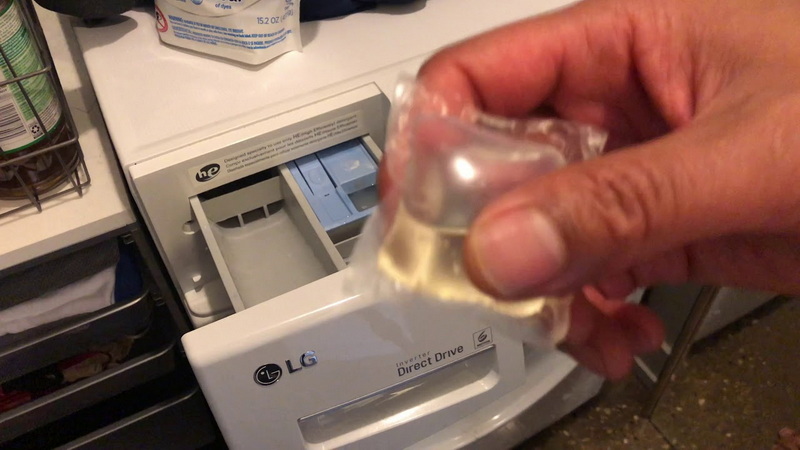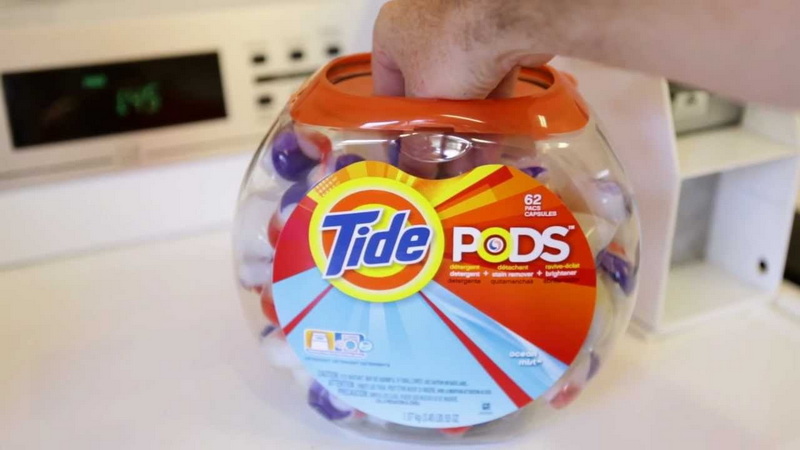Dongguan UFine Daily Chemical Co.,Ltd.
- All
- Product Name
- Product Keyword
- Product Model
- Product Summary
- Product Description
- Multi Field Search
Views: 222 Author: Tomorrow Publish Time: 11-06-2025 Origin: Site











Content Menu
● Washing Machine Considerations
● Safety For Children And Pets
● Environmental And Economic Considerations
● Troubleshooting And Practical Tips
● Best Practices For Different Household Scenarios
● FAQ
>> 1. How should laundry pods be stored to prevent accidents?
>> 2. Do using more than one pod per load increase safety risks?
>> 3. Do laundry pods dissolve well in cold water?
>> 4. What should I do if a pod is damaged or leaks?
>> 5. Are laundry pods more expensive per load than other detergents?
Laundry pods offer a convenient, pre-measured way to dose detergent, but their use requires careful handling to ensure safety and optimal cleaning results. This article covers safe handling, correct dosage, machine considerations, safety for households with children and pets, environmental and economic factors, troubleshooting, and practical tips to maximize performance.

Laundry pods encapsulate detergent in a waterproof coating that dissolves in water. They simplify washing by providing consistent dosing and reducing measuring errors. Yet, because pods resemble candy, households with children or pets must adopt strict safety practices. This article presents practical guidance for using laundry pods safely and effectively across different washing machines and water conditions.
Laundry pods are single-dose detergent capsules designed to release cleaning agents in the wash cycle. They typically contain surfactants, enzymes, bleaches or color-safe alternatives, water softeners, fragrance, and stabilizers. Pods differ from liquid and powder detergents in packaging, dosing consistency, and potential for remaining residue if not used correctly.
- Keep pods in their original packaging and store in a high, cool, dry place out of reach of children and pets.
- Use child-resistant containers if you transfer pods to another location, but prefer to leave them in the manufacturer's packaging until use.
- Do not crush, cut, or puncture pods. Damaged pods can release concentrated detergent.
- Store away from food and beverages to avoid accidental contamination.
- If a pod is dropped on the floor, pick it up with dry hands and place it back in its package or a sealed container.
- Read the label for the recommended pod count per load. Most standard loads use one pod, with adjustments for heavily soiled loads or large items.
- Do not attempt to cut or split pods to create smaller doses; this can release concentrated detergent and damage fabrics.
- If your water is unusually hard, consider a detergent with higher stain-fighting builders, but avoid using more pods than recommended.
- For front-loading machines, place the pod in the designated dispenser compartment or directly in the drum as instructed by the manufacturer. Do not place pods in drawers that are not intended for the detergent.
- For top-loading machines, follow the same safety guidance and consult the user manual, as some machines may have specific recommendations.

- Front-load machines typically use less water and rely on complete dissolution of the pod. Ensure the pod is placed where it will dissolve during the wash cycle.
- Top-load machines may have a longer wash cycle and different agitation. Use the recommended pod dosage for the load size and soil level.
- Avoid placing pods in contact with clothing before the wash begins, especially in cold water, to help ensure early dissolution and reduce the potential for fabric irritation.
- If you notice residue on clothes, check that you are using the correct load size, water temperature, and that the machine's dispensing mechanism is functioning properly. Some machines may require a pre-rinse or extra rinse cycle for heavily soiled loads.
- Store pods out of sight and reach, ideally in a cabinet with a child-lock or high shelf.
- Teach family members that pods are not candy and should never be eaten. Consider labeling storage with a clear warning.
- If ingestion occurs, seek immediate medical attention or contact a poison control center. Do not induce vomiting unless advised by a medical professional.
- Use a bright, clearly labeled container for the laundry room to deter accidental handling by children.
- Pods reduce handling errors and improve convenience but consider the environmental impact of packaging. Look for recyclable packaging and brands that use sustainable materials.
- Compare cost-per-load with liquid and powder detergents. Pods may offer convenience but can be pricier per load; evaluate total cleaning performance and waste.
- Avoid over-dosing, which wastes detergent and funds and can harm fabrics or washing machines.
- Detergent residue: Ensure sufficient water flow, use the recommended load size, and select an appropriate wash temperature. If needed, run an extra rinse on heavily soiled loads.
- Color transfer or fading: Use a detergent with color-safe ingredients and separate heavily colored items from whites.
- Odor control: If clothes retain odors, consider a longer wash or a pretreatment for affected items, and ensure you are using fresh pods and avoiding overloading the machine.
- Stain removal: Treat tough stains with a pre-wath or targeted stain remover before washing, ensuring compatibility with the fabric and detergent.
- Machine maintenance: Regularly clean the detergent drawer and run a maintenance cycle to prevent buildup that can interfere with pod dissolution.
- Families with children: Store pods in a child-resistant cabinet, teach safety, and supervise laundry activities for younger children.
- Shared housing or dorms: Use clearly labeled containers and establish a shared safety protocol for handling detergents.
- Eco-conscious households: Pair pods with recyclable packaging, and consider brands with lower environmental footprints or refill options where available.
Using laundry pods safely and effectively requires attention to storage, dosing, machine compatibility, and safety protocols. By following manufacturer guidelines, maintaining proper storage, and implementing safety measures for households with children and pets, you can achieve reliable cleaning results while minimizing risks and waste.

Store laundry pods in their original packaging in a high, cool, dry place out of reach of children and pets. Use a cabinet with a child lock if possible, and avoid transferring pods to other containers. If you must transfer, use a clearly labeled, locked container and keep it away from food and beverages.
Yes. Using more than the recommended number of pods can release excess detergent, potentially damaging fabrics, causing excessive suds, or posing a greater risk if ingested by children or pets. Always follow the product label for the correct dosage.
Most laundry pods are designed to dissolve in a wide range of water temperatures, including cold water. If you notice residue after a cold wash, ensure you are using the correct load size, consider a warmer wash for heavily soiled items, or run an extra rinse.
Stop using the damaged pod and keep it away from skin and eyes. Wash hands after handling. If any liquid or powder spills, wipe it up with disposable towels and wash the area. If exposure occurs to skin or eyes, rinse with plenty of water and seek medical advice if irritation persists.
Cost per load varies by brand and packaging. Pods can be more convenient and reduce measuring errors, but they may have a higher per-load cost than liquid or powder detergents. Compare total costs per load and consider packaging waste and disposal when evaluating value.